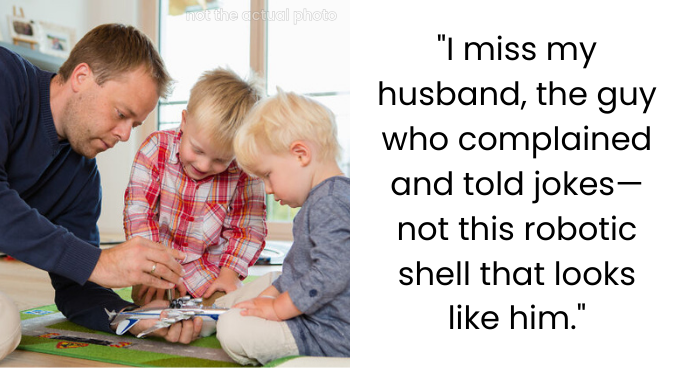My Husband Has Become a Shell of Himself, and I Don’t Know How to Help
A 32-year-old woman has taken to Reddit to share her worries about her husband – a 36-year-old man who she believes has changed from a fun-loving, silly person to a ‘robot shell’ of the same man. Even though he is still a husband and father, his actions are robotic and lacking joy. He puts in the 9-5 grind, spends time at home knocking out chores, interacts with their two kids, engages with her on a surface level, and then goes to sleep. The schedule remains, but he doesn’t seem to shower them in warmth and laughter the way he used to during their family life.
She thinks he might be depressed because he has not taken any time for himself, he no longer games, he no longer watches TV. But even their sex is unsatisfying, as he fucks her out of duty rather than desire. She tries to connect, to fix, but he’s “great,” he says, and she knows that is work circuitry running. Isolated and unsure of how best to support him, she misses the vibrant man she wed six years ago — and is determined to reignite their spark.
Many people are faced with an abundance of responsibilities and a load of pressure on a daily basis

This woman was concerned about life’s pressures getting to her husband, as he was “becoming a robot”
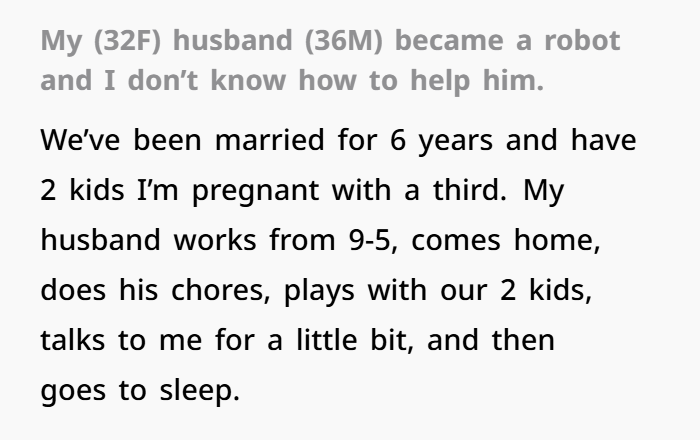
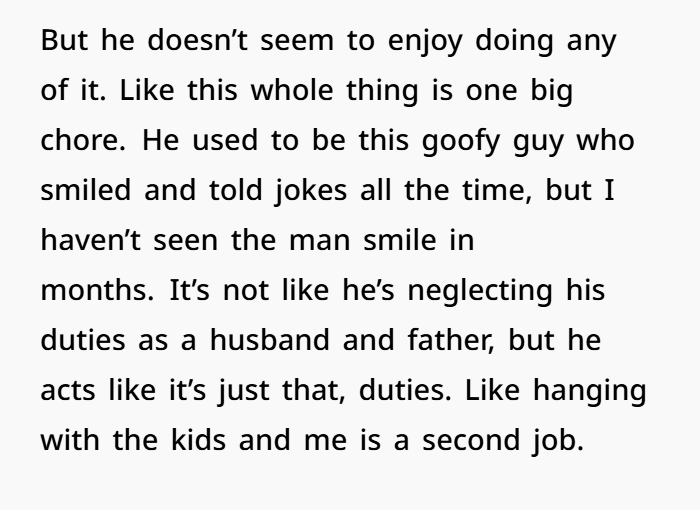
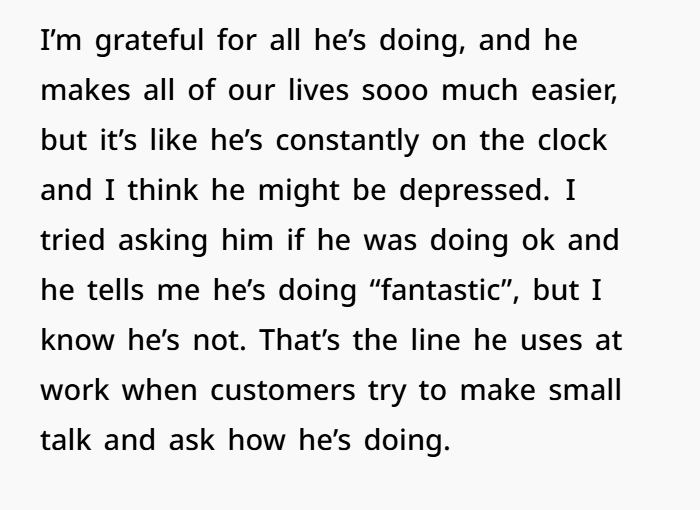
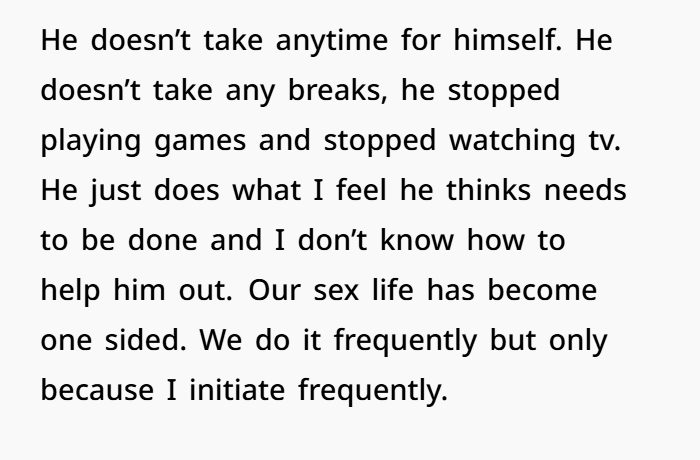

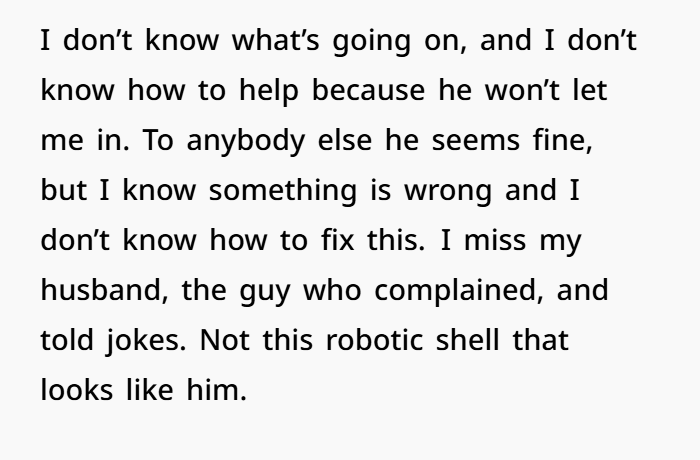
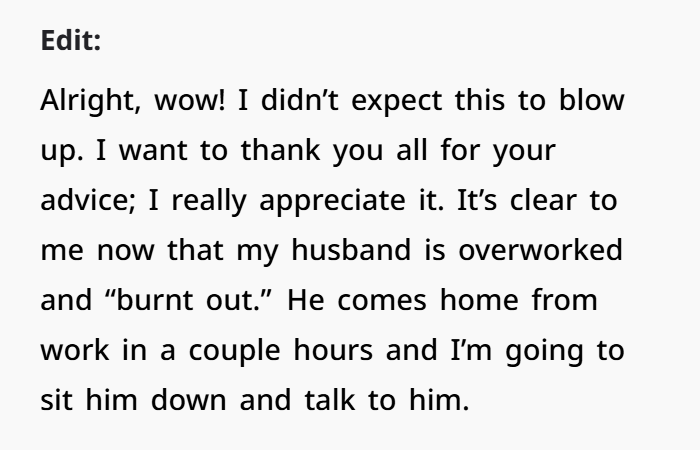
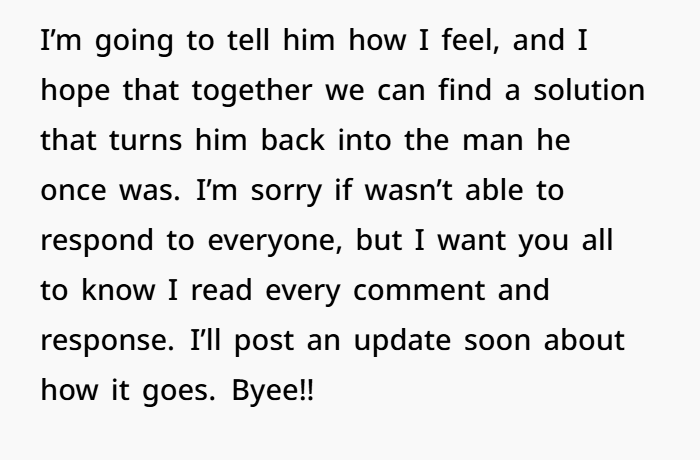
- Burnout and Emotional Disconnect: While burnout is a condition that occurs when a person feels emotionally and physically drained because of long-term stress. Burnout, defined in a 2019 study by the World Health Organization (WHO) as “a syndrome conceptualized as resulting from chronic workplace stress that has not been successfully managed,” is marked by exhaustion, depersonalization, and diminished professional efficacy. If your husband has a methodical routine and has stopped doing things he used to enjoy, he may be burned out — and not taking enough time to relax away from the kids, even if he is stuck at home because of lack of work.
- Men and Mental Health Stigmas: Research indicates many men do not talk about their feelings in public due to social norms surrounding masculinity. According to APA (American Psychological Association), many men refrain from seeking help for depression or stress, believing that marking weakness or worrying of being a burden to their loved ones. His constant claim to “fantastic” might be an indicator that deep down he has realized that he has to look strong, even at times when he is waiting for support, wearing the metaphorical cape that assumes everyone should see him perfect to be in control.
- The Role of Marital Communication: One of the most important tools in overcoming challenges in a marriage is effective communication. Dr. John Gottman warns about how better tools are needed by you when starting difficult resultant discussions with soft startups. We have to communicate with kindness and compassion to really create a space where he feels safe to open up, and using statements like “I have noticed” and “I feel” instead of accusations can go a long way.
- Parenthood and Identity Loss: The same study outlines that many parents report feeling a loss of self, and the transition to parenthood necessitates sacrifice. When your husband puts duties before happiness it tells to him, the first ones are more important than the second ones, but even more importantly that he is obliged to subjugate his personal needs to socially acceptable tasks of providing for the family.
Action Plan:

- Initiate a Heartfelt Conversation: Find a quiet place with no distractions away from each other, where you can sit down with your husband. Then try to start with something like:
- You have been so incredible with us and I am just thinking that you may not be yourself lately. I want to see you enjoying like you used to and I want to help you do that.
- Encourage Him to Take Time for Himself: Suggesting methods to help him take an interest. Spending an hour on a hobby each night, gaming with friends, or working towards another goal — taking baby steps can help reignite his passions.
- Consider Therapy: Casually recommend solo or couple therapy. Someone like him would give him tools to help him cope with stress, and help you work on communication. Position therapy as a preventive, not as a last-resort solution.
- Divide Responsibilities: Re-evaluate household and parenting responsibilities to be equally shared. And should he feel overwhelmed, discuss how you might be able to ease some of the burden (do you need to hire casual babysitters or do you need to alter some of your daily routines?).
- Rebuild Emotional Intimacy: Instead, be present for those little things: catching up on a favorite show together, going on a date night, or talking in bed. Your bond affects your physical connection: Intimacy is mainly a reflection of emotional connection, hence taking care of your relationship outside the bedroom would reflect positively on both the relationship and physical intimacy.
Fellow netizens shared their thoughts on the situation, and some suggested that the husband might be burnt out

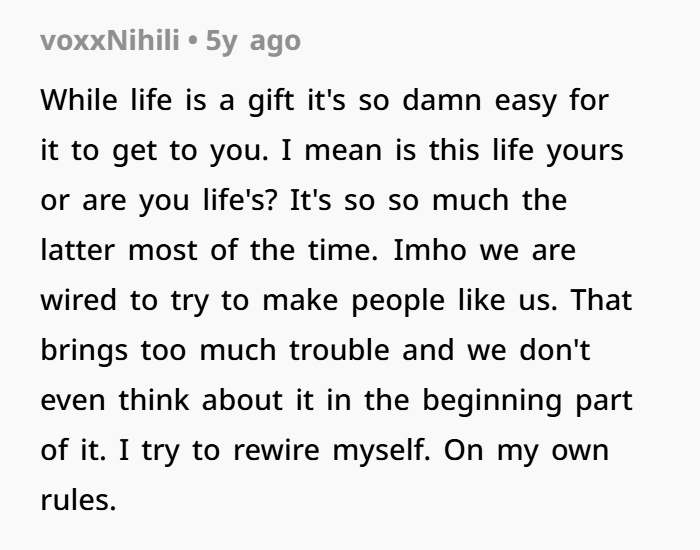



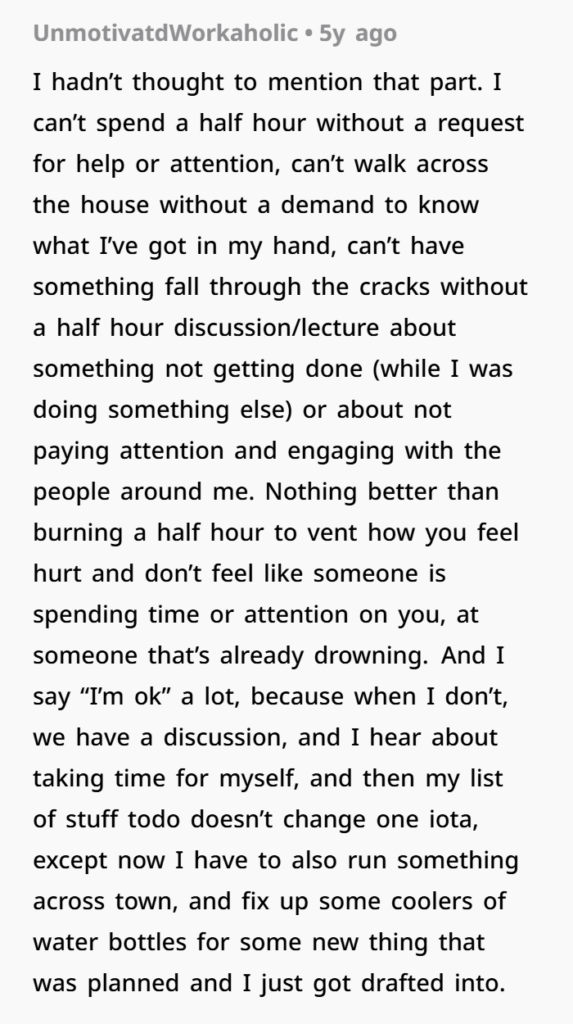
Those pressures to be provider and caregiver for your regards to husband development are what he felt. With honest dialogue, deliberate efforts at bolstering his mental health, and flexibility to meet him halfway, you can foster an atmosphere in which he resuming his personality and rediscovering the glimmer of a joy that brought you two together in the first place.
Those who are or have been in similar situation will surely agree—good luck to you two, keep us updated on the next convo!

